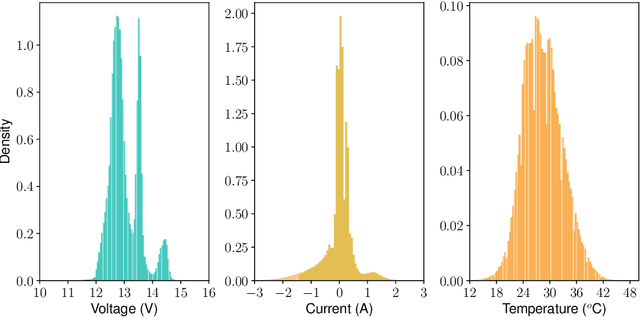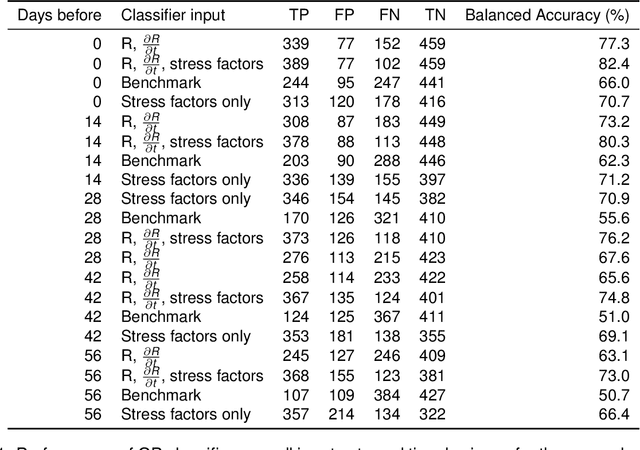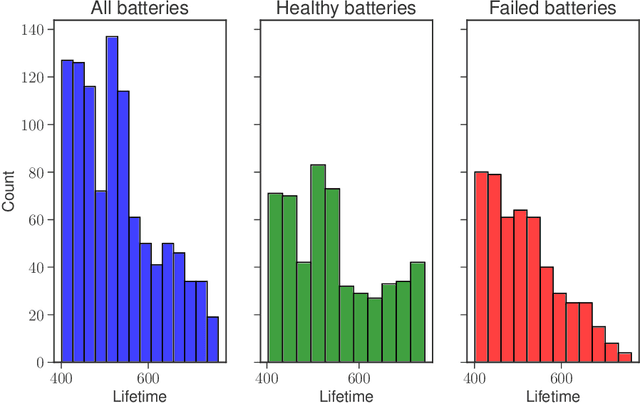Antti Aitio
Learning battery model parameter dynamics from data with recursive Gaussian process regression
Apr 26, 2023Abstract:Estimating state of health is a critical function of a battery management system but remains challenging due to the variability of operating conditions and usage requirements of real applications. As a result, techniques based on fitting equivalent circuit models may exhibit inaccuracy at extremes of performance and over long-term ageing, or instability of parameter estimates. Pure data-driven techniques, on the other hand, suffer from lack of generality beyond their training dataset. In this paper, we propose a hybrid approach combining data- and model-driven techniques for battery health estimation. Specifically, we demonstrate a Bayesian data-driven method, Gaussian process regression, to estimate model parameters as functions of states, operating conditions, and lifetime. Computational efficiency is ensured through a recursive approach yielding a unified joint state-parameter estimator that learns parameter dynamics from data and is robust to gaps and varying operating conditions. Results show the efficacy of the method, on both simulated and measured data, including accurate estimates and forecasts of battery capacity and internal resistance. This opens up new opportunities to understand battery ageing in real applications.
Predicting battery end of life from solar off-grid system field data using machine learning
Jul 29, 2021



Abstract:Hundreds of millions of people lack access to electricity. Decentralised solar-battery systems are key for addressing this whilst avoiding carbon emissions and air pollution, but are hindered by relatively high costs and rural locations that inhibit timely preventative maintenance. Accurate diagnosis of battery health and prediction of end of life from operational data improves user experience and reduces costs. But lack of controlled validation tests and variable data quality mean existing lab-based techniques fail to work. We apply a scaleable probabilistic machine learning approach to diagnose health in 1027 solar-connected lead-acid batteries, each running for 400-760 days, totalling 620 million data rows. We demonstrate 73% accurate prediction of end of life, eight weeks in advance, rising to 82% at the point of failure. This work highlights the opportunity to estimate health from existing measurements using `big data' techniques, without additional equipment, extending lifetime and improving performance in real-world applications.
 Add to Chrome
Add to Chrome Add to Firefox
Add to Firefox Add to Edge
Add to Edge